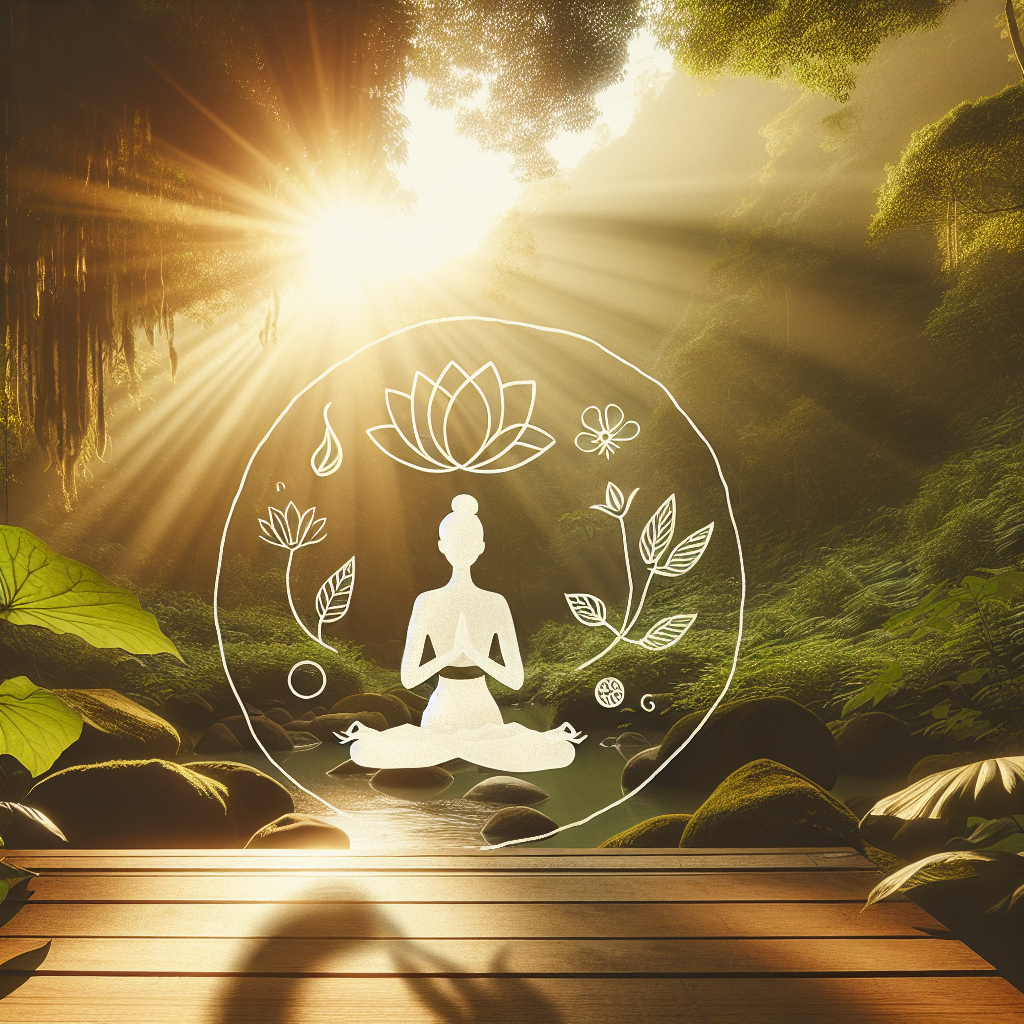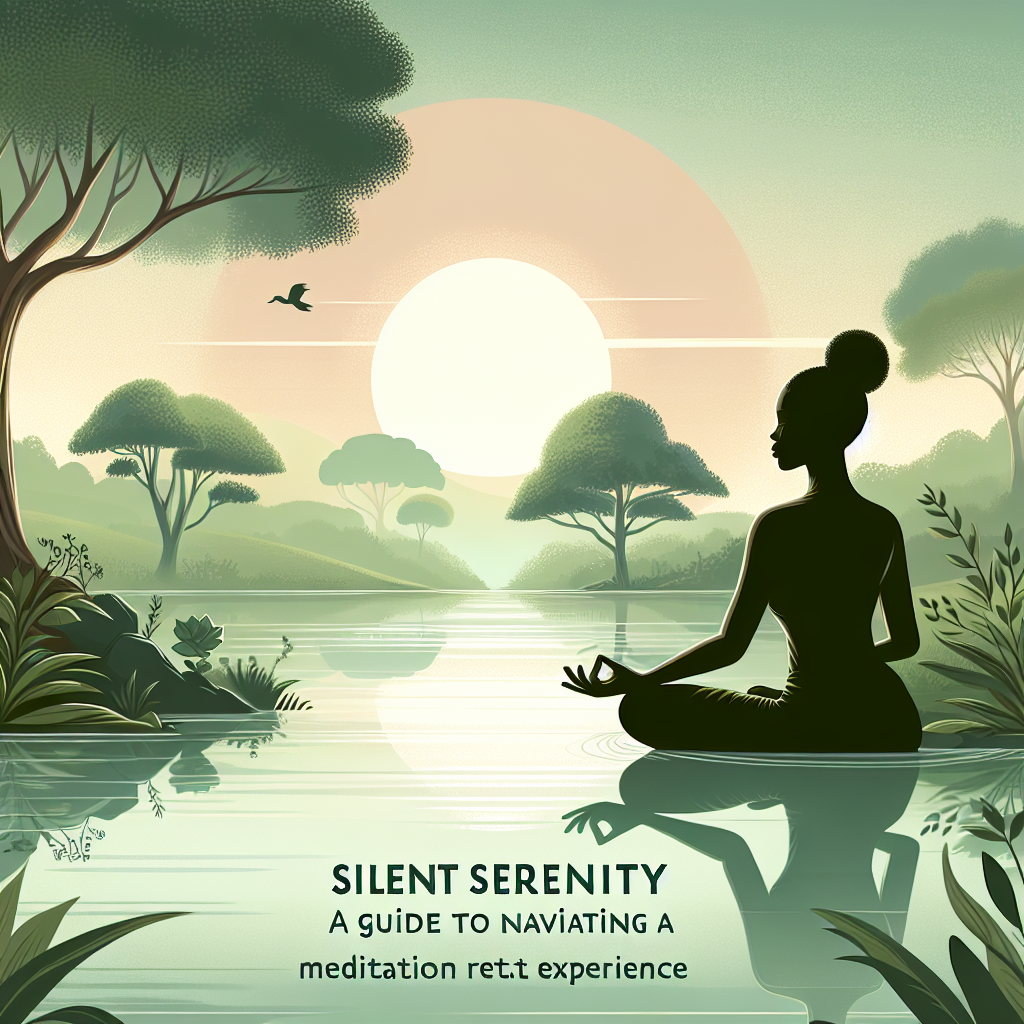In today’s fast-paced world, it’s easy to feel overwhelmed and stressed out. From work deadlines to family responsibilities, it can sometimes feel like there’s no time to relax and unwind. meditation is a powerful tool that can help you find calmness and inner peace amidst the chaos of daily life. In this article, we will explore some simple meditation practices that are perfect for beginners looking to cultivate a sense of tranquility and centeredness.
Meditation is a practice that has been around for thousands of years and is a key component of many spiritual traditions. While the practice of meditation can take many forms, the basic idea is to focus your attention on the present moment and let go of distracting thoughts and feelings. This can help to quiet the mind, reduce stress and anxiety, and cultivate a sense of inner peace and well-being.
One of the simplest and most accessible forms of meditation is mindfulness meditation. This practice involves paying attention to your breath as you inhale and exhale, and noticing any thoughts, feelings, or sensations that arise without judgment. By bringing your attention back to your breath whenever your mind wanders, you can train your brain to focus more effectively and let go of negative or distracting thoughts.
To begin a mindfulness meditation practice, find a quiet and comfortable place to sit or lie down. Close your eyes and take a few deep breaths, focusing on the sensation of air entering and leaving your body. Notice any tension or discomfort in your body and try to relax and release it with each exhale. As thoughts or distractions arise, simply acknowledge them and return your focus to your breath.
Another simple meditation practice for beginners is loving-kindness meditation. This practice involves sending wishes of love, compassion, and well-being to yourself and others. To begin a loving-kindness meditation, find a comfortable position and close your eyes. Take a few deep breaths and bring to mind someone you care about, such as a close friend or family member. Silently repeat phrases such as “May you be happy, may you be healthy, may you be safe, may you be at peace” as you imagine sending them love and positive energy.
Once you have practiced loving-kindness meditation for yourself, you can extend these wishes to others, such as acquaintances, colleagues, or even people you may have conflicts with. By cultivating feelings of love and compassion for yourself and others, you can foster a sense of interconnectedness and reduce feelings of isolation and separation.
Body scan meditation is another simple and effective practice for beginners looking to cultivate calmness and inner peace. This practice involves mentally scanning your body from head to toe, noticing any areas of tension, discomfort, or relaxation. By bringing awareness to your body in this way, you can release physical and emotional tension and increase your sense of presence and mindfulness.
To practice body scan meditation, find a quiet and comfortable place to lie down. Close your eyes and take a few deep breaths, focusing on the sensation of air entering and leaving your body. Start by bringing your attention to your feet and slowly move your awareness up through your body, noticing any sensations or feelings that arise. If you encounter areas of tension or discomfort, try to breathe into them and release any holding or resistance.
As you continue to practice body scan meditation, you may notice an increased sense of relaxation and calmness in your body and mind. By bringing awareness to your physical sensations and letting go of tension and stress, you can cultivate a deeper sense of inner peace and well-being.
In addition to these simple meditation practices, there are many other techniques and styles of meditation that can help beginners cultivate calmness and inner peace. Some popular forms of meditation include mindfulness meditation, loving-kindness meditation, body scan meditation, and guided imagery meditation. Each of these practices offers unique benefits and can be tailored to suit your individual preferences and needs.
FAQs:
Q: How long should I meditate for each day?
A: There is no set amount of time that is required for meditation. Some people find that even just a few minutes of meditation each day can have a positive impact on their mental and emotional well-being. However, many experts recommend aiming for at least 10-20 minutes of meditation per day to experience the full benefits of the practice.
Q: What should I do if I have trouble focusing during meditation?
A: It’s completely normal to have trouble focusing during meditation, especially when you are just starting out. If you find that your mind is wandering or you are feeling restless, try bringing your attention back to your breath or mantra. You can also try using guided meditation apps or recordings to help you stay focused and present.
Q: Can meditation help with anxiety and stress?
A: Yes, meditation has been shown to be an effective tool for reducing anxiety and stress. By bringing your attention to the present moment and letting go of negative or distracting thoughts, you can cultivate a sense of calmness and inner peace. Many people find that regular meditation practice can help them manage their emotions and cope with daily stressors more effectively.
Q: Can I meditate lying down?
A: While it is generally recommended to meditate in a seated position with a straight spine, you can also meditate lying down if that is more comfortable for you. However, be aware that lying down may increase the likelihood of falling asleep during meditation, so try to stay alert and focused if you choose this position.
In conclusion, meditation is a powerful practice that can help beginners cultivate a sense of calmness and inner peace. By incorporating simple meditation practices into your daily routine, you can reduce stress and anxiety, increase your focus and presence, and enhance your overall well-being. Whether you choose to practice mindfulness meditation, loving-kindness meditation, body scan meditation, or another technique, the key is to stay consistent and patient with yourself as you explore the many benefits of meditation.




Leave A Comment